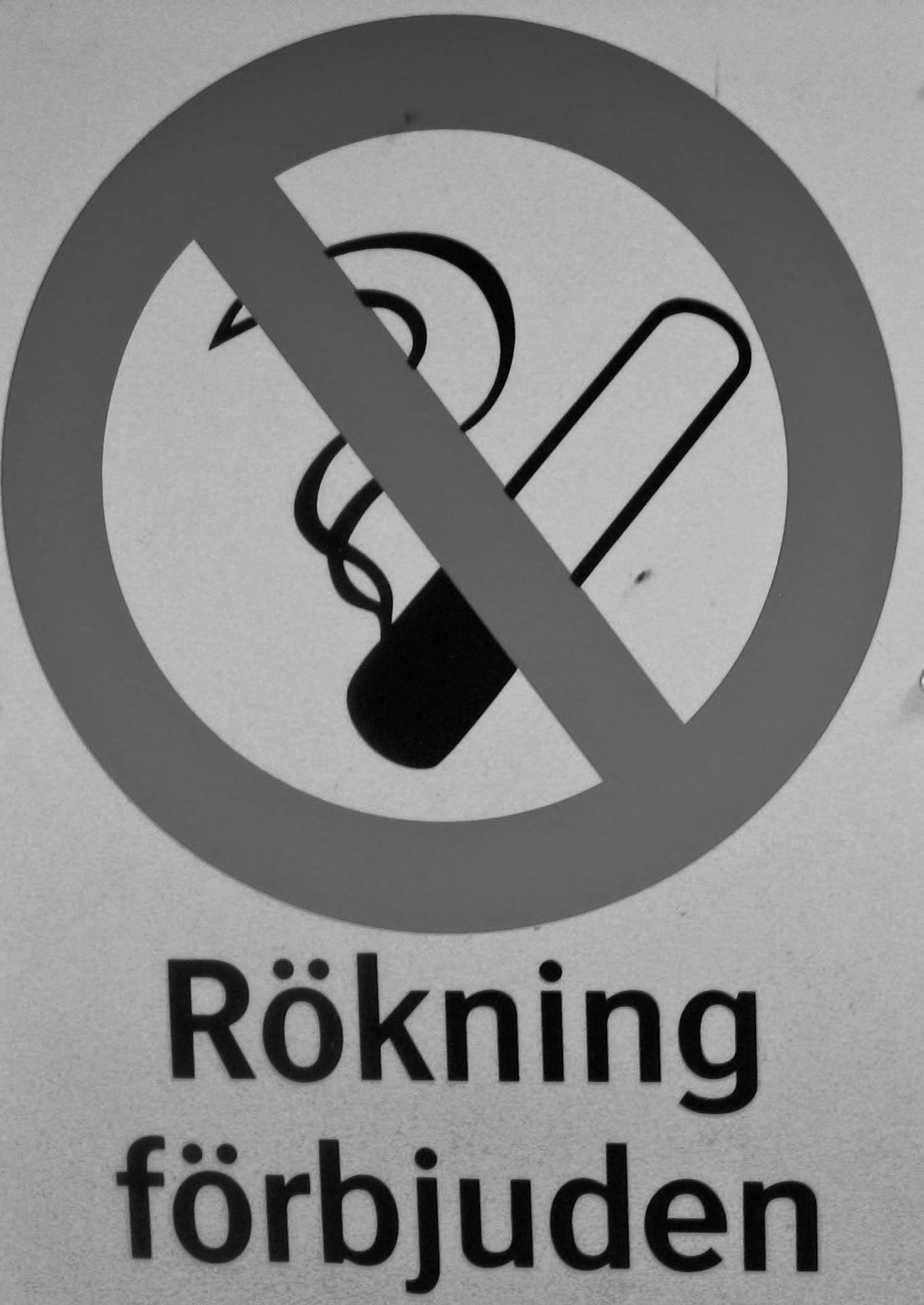Smoking in the Nordic countries
Even before Norway banned smoking in public arenas in 2004 and the other Nordic countries followed suit, the percentage of the population who smoke has been diminishing and continues to do so, although Swedish snuff (snus) can be chosen as an alternative.

Owing to relentless public campaigning against smoking, heavy indirect taxation on tobacco and a rapid change in cultural norms, the prevalence of tobacco smoking in the Nordic countries has declined rapidly since the 1990s. In 2019, just 10% of the adult Swedish population and 16% of Danes reported that they smoked on a daily basis, while the figures for Norway and Finland were 17% and 19%, respectively.
In all the Nordic countries, public arenas where smoking is permitted have diminished since the 1980s. Smoking has successively been abolished from trains, trams, public offices, workplaces, as well as from restaurants and bars. Smoking is in this way increasingly becoming a private, mainly outdoors activity. Today, smoking is also to some extent associated with class, although less so than in many other countries: it is increasingly seen as a habit of the poor, the rural, certain ethnic minorities and the working class.
As the second country in the world after Ireland, Norway banned smoking from all public indoor venues, including bars, restaurants and nightclubs, on 1 June 2004. Popular opinion associated the ban with an unpopular minister of health, but in fact, the measure was supported by a majority of the Storting (parliament). The restaurant business reacted warily and feared numerous bankruptcies. Many cafes and bars responded by furnishing their outdoor serving areas with heaters and blankets. Semi-legal clubs for smokers also appeared. The other Nordic countries soon followed suit with similar laws, and with the hindsight of about 15 years, it can now be confirmed that the measures have been successful; few if any bankruptcies can be blamed on the smoking bans, which now have the support of a majority of the population in all the Nordic countries.
A Swedish alternative to smoking, snus (Swedish snuff or smokefree tobacco), has become increasingly widespread in the other Nordic countries as well. The health risks associated with snus are still debated, but they have apparently been proved to be far less serious than the cancer risks incurred by smoking. It is also difficult to prevent restaurant-goers from using snus.